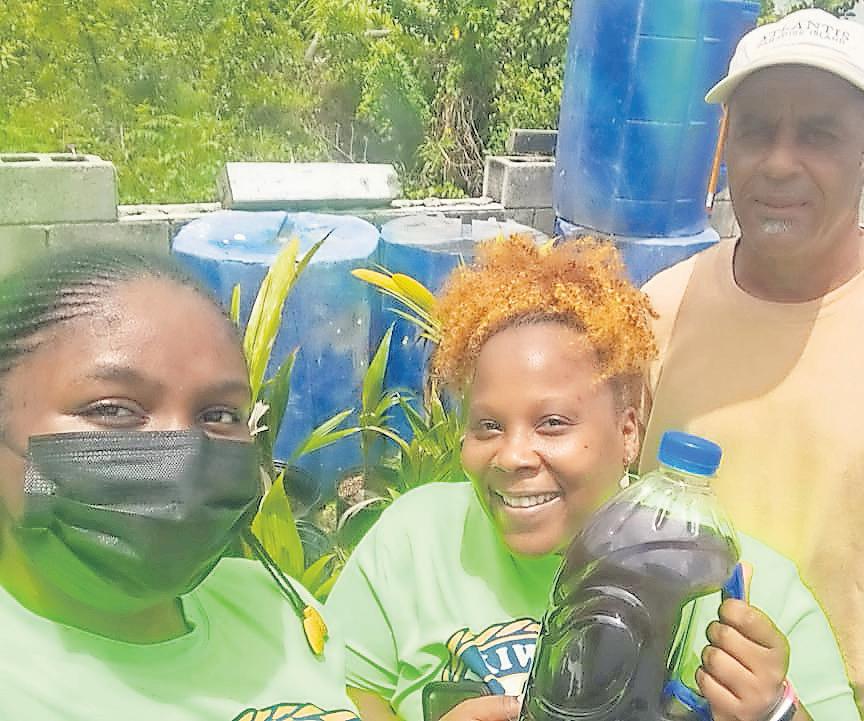
3 minute read
Interview 4
from 08062021 WEEKEND
by tribune242
Jannell Smith (centre) with farmer Don Lockhart (right) and Kiwanis member Petera. Tamarind and loquat sprouting.
during Hurricane Dorian,” said Jannell.
Advertisement
So why is this project so important for Abaco?
“It’s important to us because the trees that were uprooted and destroyed, they just won’t grow back overnight. It will take years and years before they can mature and bear fruit, and so we knew that if we want Abaco to rebuild again, we would have to help Mother Nature out so that we can have fruit trees in the future,” she said.
Abaco has been in a distressed state since the storm’s passing.
“A lot of people were in survival mode,” said Jannell.
“People were literally starving. Those trees which were destroyed are a source of food. Can you imagine what it is to live in the Bahamas and not be able to get a mango or a dilly to eat off a tree because there is nothing left? And of course, things are already so expensive on the island that having to buy all your fruits and vegetables is just way too expensive and sometimes the quality is not there,” she said. Since the project started, the team has made tremendous strides. They planted Kiwanis Patch gardens and worked to place trees for schools and homes throughout the island. “For our first phrase, we intended to give at least four fruit trees to every school in Abaco. If all the children in Abaco have access to fruit, then their families will as well,” she said.
Some of the schools they have managed to supply trees to include Crossing Rocks Primary School, Cherokee Primary School, James A Pinder Primary School.
“We also donated plants. It will also teach students how to farm and become self-sufficient and love nature and feel that there is hope. There are so many benefits.
We have officially completed all of the schools in North and South Abaco. Phase one is almost
done,” said Jannell. “In Central Abaco we have established a propagation centre where our adult and our SLP (Service Leadership Programmes) members are working together to cultivate more fruit trees.” Through Project Rise, they have planted hun“Can you imagine dreds of trees, including sea grape, mango, lime and coconut trees. what it is to live in Some of the group’s sponsors include Dr Leno Davis; Don Lockhart, a Bahamian farmer who the Bahamas and has donated organic fertilizer for the project; the Kiwanis Club of Richmond County; the 100K not be able to get Tree Initiative, and the Ministry of Agriculture in Abaco led by Josefina Adderley-Curry, as well as a mango or a dilly The Trees That Feed Foundation. In addition to the school initiative, the club also to eat off a tree wants to ensure that the local parks and public spaces have flowering trees. because there is “We would like to plant at least tree in the yard of everyone who wants one,” said Jannell. nothing left?” Anyone interested in donating to the project, whether it be in the form of seedlings, clippings, soil, pots, flowering or fruit trees, is encouraged to contact the organisation. Kiwanis and its family of clubs - nearly 600,000 members strong - annually raise more than $100 million and dedicate more than 18 million volunteer hours to strengthen communities and serve children. Members of every age attend regular meetings, experience fellowship, raise funds for various causes and participate in service projects that help their communities. Members also make an impact throughout the world by participating in Kiwanis International’s Global Campaign for Children.









